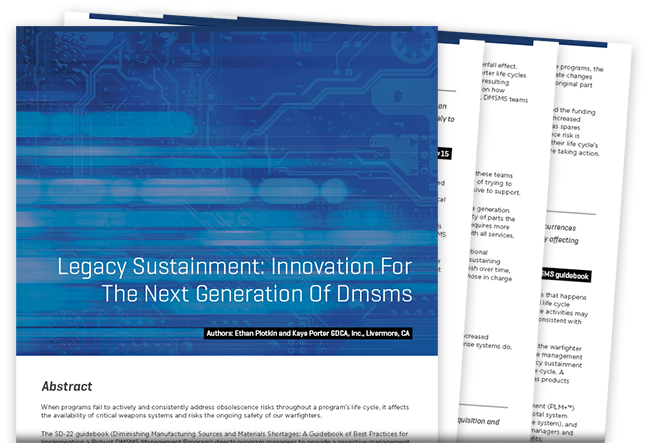WHITEPAPER:
Legacy Sustainment: Innovation for the Next Generation of DMSMS

When programs fail to actively and consistently address obsolescence risks throughout a program life cycle, it affects the availability of critical weapons systems and risks the ongoing safety of our warfighters. The SD-22 requires program managers provide a proactive management process whereby an ongoing DMSMS impact assessment can be performed to “examine the potential effects that a DMSMS issue, at any level of a system, may have on cost, schedule, readiness, and availability.”
Techniques outlined by the SD-22 represent traditional best practice; however, they often fall short of being able to effectively and efficiently support aging programs, which need ongoing access to critical IP. When it is understood that traditional obsolescence management itself often starts too late in a program’s life cycle, we see the need to address ongoing risk from a different angle: to accurately understand our DMSMS and obsolescence risk with the goal of planning for legacy and total life cycle sustainment as opposed to continuously reacting to obsolescence.
